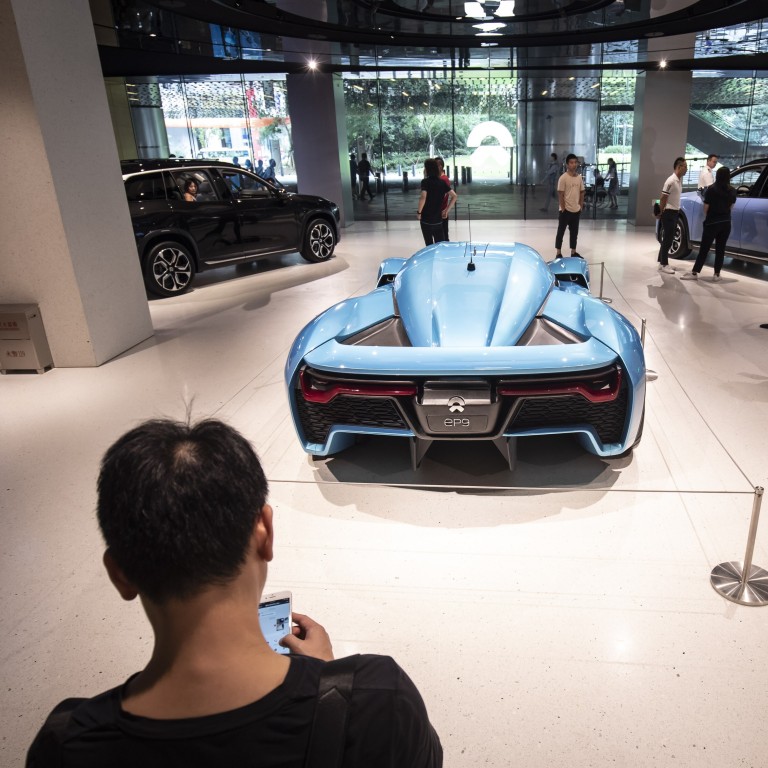
Electric car makers NIO, Xpeng, Tesla tap China’s shopping mall footfall with ‘experience’ stores
- Electric vehicle (EV) makers now have a presence in 47 of Shanghai’s 93 shopping centres tracked by JLL, an unprecedented number
- The surging number reflects a desire by the manufacturers to capitalise on the growing popularity of ‘green’ cars among Chinese motorists, say analysts
Unlike traditional showrooms, the branded shops offer visitors anything from food and refreshments to libraries. And of course potential buyers can test-drive the cars.
“EV car makers have entered into more than half [47] of 93 shopping malls in Shanghai tracked by us,” said Vivian Zhu, director in JLL’s Shanghai retail team.
Some malls, like Shanghai Global Harbour and Chamtime Square, each have five different electric vehicle (EV) experience stores. “We have not seen this before,” said Zhu.
Such shops, ranging in size from 200 to 1,000 square metres, can cost more than 1 million yuan (US$150,000) to set up.
There are now 189 EV experience stores in China, with Shanghai home to the largest number, according to data from Cushman & Wakefield.
“We have witnessed a rebirth of demand lately as the market has been extremely bullish with EVs enjoying skyrocketing performances,” said Zino Helmlinger, head of retail at CBRE Eastern China.
Having large, immersive spaces in shopping centres is very beneficial for the electric car companies because they can attract, educate and convert ordinary consumers to buying one of their products, said Shaun Brodie, head of occupier research for Greater China at Cushman & Wakefield.
“Electric car companies can attract more consumers and increase their marketing influence by opening experience stores in shopping centres in China that enjoy a large amount of footfall,” he said.
“There are more than 70 auto experience stores in quality shopping malls in Shanghai and Beijing and this number is only expected to grow in the future.”
NIO, one of mainland China’s major rivals to Tesla, last September opened a two-storey experience showroom called NIO House in Raffles City mall in Chongqing. The 1,490 square-meter space boasts a library, cafe, and panoramic view of the surrounding river and the city.
NIO has opened 12 such shops since 2018, while rival Xpeng Motors opened 15 experience stores last year. Tesla, the American market leader, has 20 such stores in Shanghai, according to JLL.
“This year, the trend will extend to the traditional carmakers that are expanding into EV production,” said Zhu.
She cited Beijing Automobile Group (BAIC) and Guangzhou-based GAC Gorup as carmakers that are rolling out plans to produce EVs.
Savills, which helped Tesla to set up its first street-level experience store in Shanghai’s Xintiandi in 2015, said it has seen a number of car brands opening showrooms in prime retail projects in first-tier and second-tier cities. They include international brands like Polestar, Genesis and Mercedes, as well as local players like Xpeng, Li Xiang, and Byton.
Polestar announced in June last year that it plans to open another 20 mall showrooms in 17 cities across China.
Green vehicles – comprising pure electric cars, petroleum-electric hybrids and vehicles that run on fuel cells – will make up one in five automobiles on China’s roads by 2025, according to a development plan for so-called new energy vehicles (NEVs) for 2021 to 2035, released by the State Council in November.

